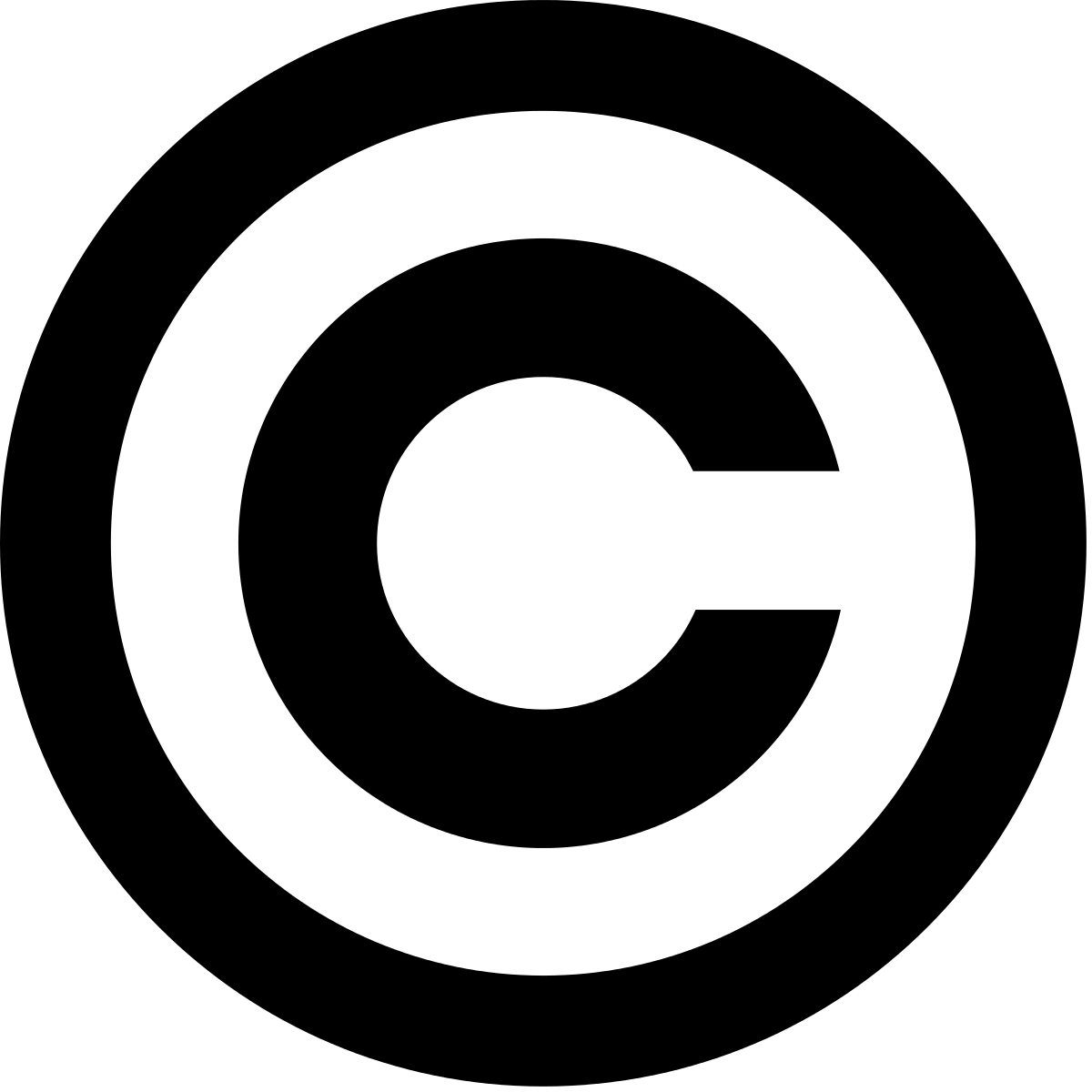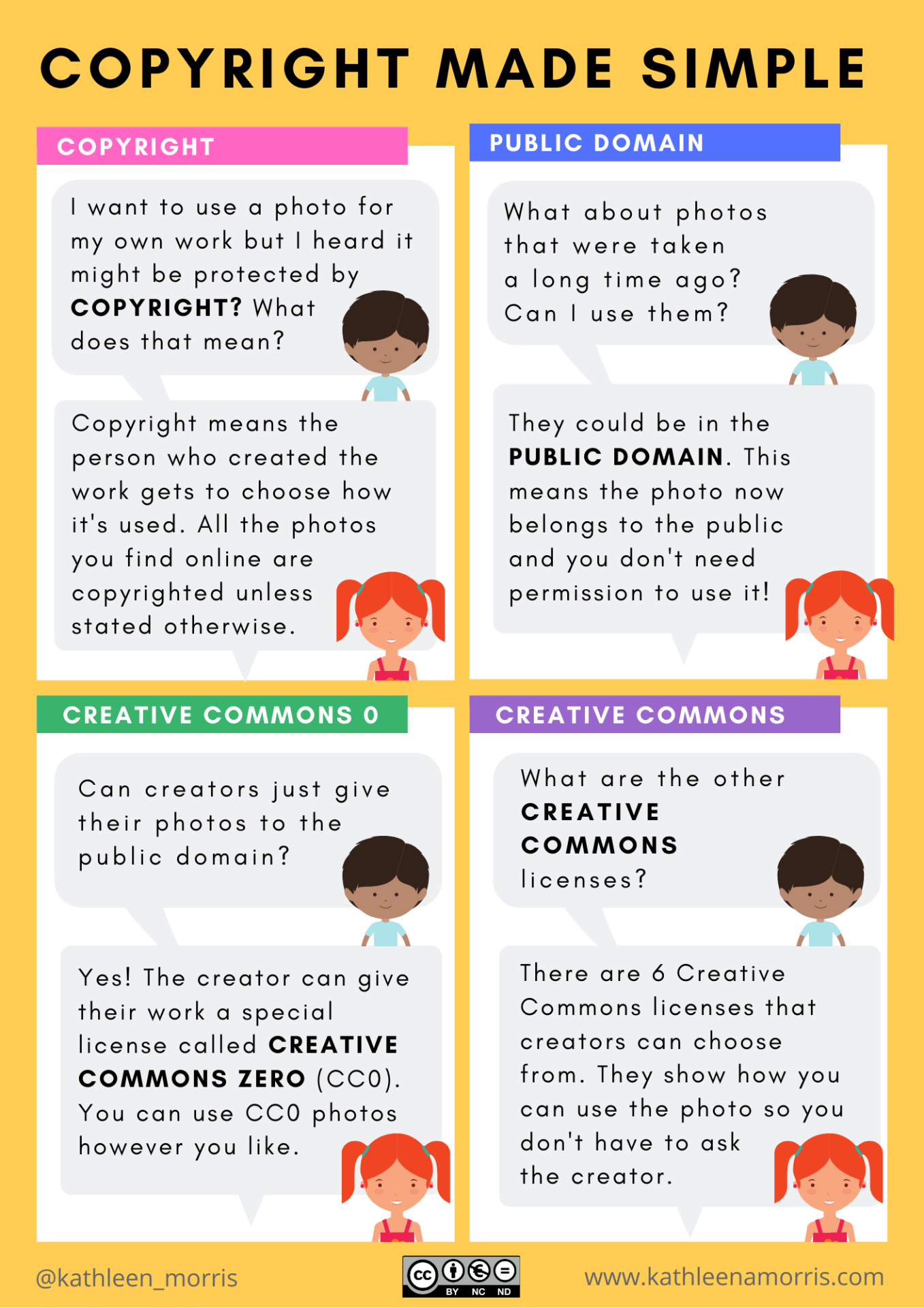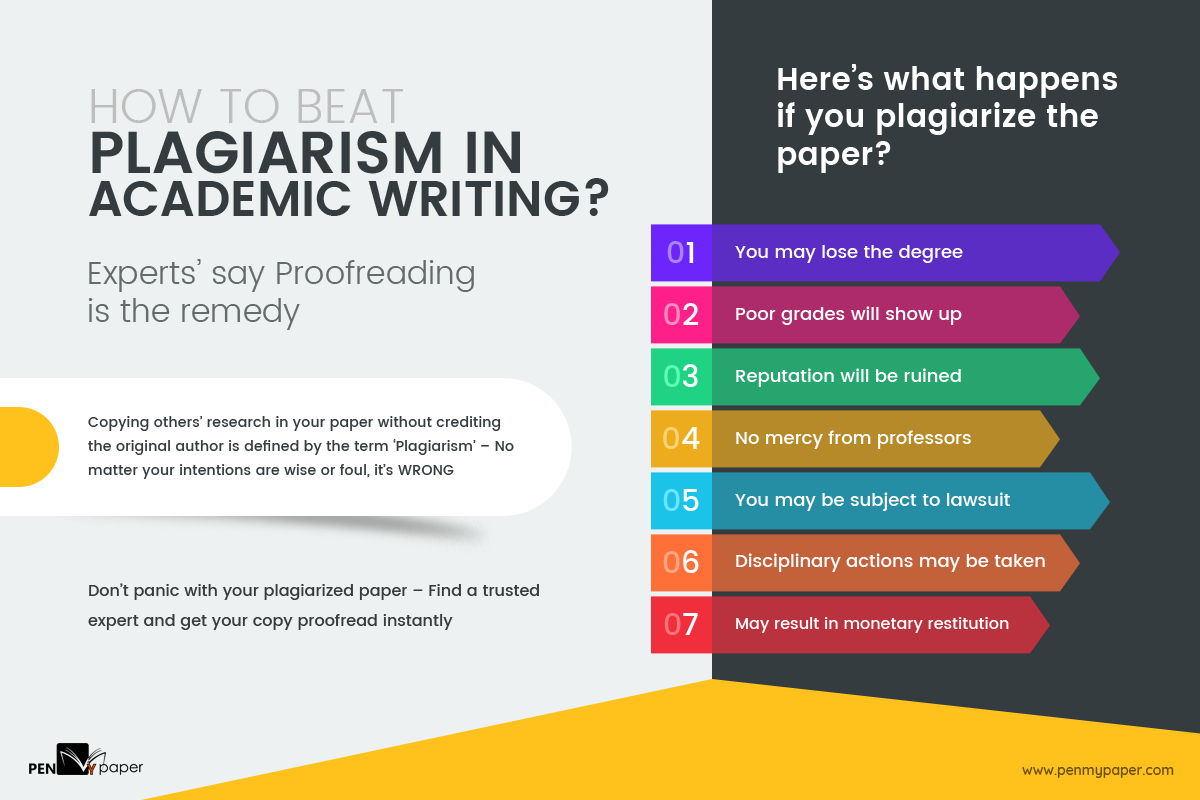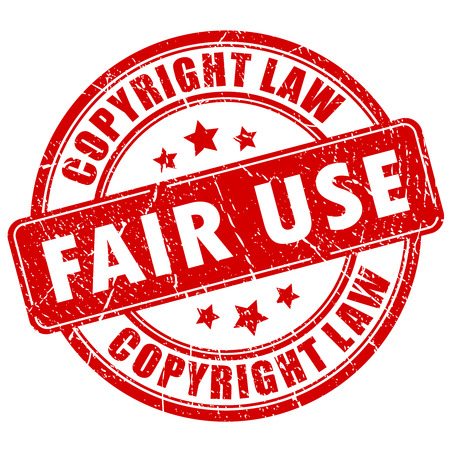
Copyright is, "the exclusive legal right to reproduce, publish, sell, or distribute the matter and form of something (such as a literary, musical, or artistic work)." (Merriam-Webster, Incorporated, Copyright)
According to Copyright Kids, as the author of the work with a copyright, others cannot do any of the following: "make copies of your work, distribute copies of your work, perform your work publicly (such as for plays, film, dances or music), display your work publicly (such as for artwork, or stills from audiovisual works, or any material used on the Internet or television), and make “derivative works” (including making modifications, adaptations or other new uses of a work, or translating the work to another media)." (Copyright Basics, 2007).
The video below by CrashCourse goes over the basics of copyright, what ideas can be copyrights, copyright protections, and who can get a copyright.
Copyright Basics: Crash Course Intellectual Property 2 from CrashCourse on YouTube.
Copyright Kids states that "to obtain permission, you must determine who is the copyright owner of the material you intend to use, contact the owner, obtain permission to use the work in the territory and format you intend, and -- in some cases -- pay the owner a fee." (Copyright Basics, 2007).

WikiHow provides the follwing tip on copyright issues, "Don't take anything from the Internet, or anywhere else, because it is almost always copyrighted, by default." (Clinton M. Sandvick & wikiHow, 2020)
The image below is a break down of copyright and some examples for each.

*Copyright for kids - http://www.copyrightkids.org/cbasicsframes.htm*
Take the Copyright Challenge - http://www.copyrightkids.org/quizframes.htm
For more information on copyright, please visit https://www.copyright.gov/
Plagiarism means, "to steal and pass off (the ideas or words of another) as one's own: use (another's production) without crediting the source." (Merriam-Webster, Incorporated, Plagiarize)
The image below from, Custom Essay Meister, shows some common types of plagiarism. (Types of plagiarism, 2019)

The video below, posted on YouTube by GCFLearnFree.org, discusses the basics of plagiarism and some strategies you can use to avoid plagiarizing.
Avoiding Plagiarism from GCFLearnFree.org on YouTube.
Did you know plagiarism is unethical because it is a type of theft? The image below can show what can and will happen if you plagiarize a paper.

Resources to Help Avoid Plagiarism
OWL: Purdue Online Writing Lab
https://owl.purdue.edu/owl/purdue_owl.html
Citation Machine
https://www.citationmachine.net/
Scribbr
https://www.scribbr.com/
Easy Bib
http://www.easybib.com/
Plagiarism.org
https://www.plagiarism.org/
The flowchart below provides excellent guidance to see if you plagiarized and the severity of the violation.

*Plagiarism for kids http://info.thinkfun.com/stem-education/teaching-students-about-plagiarism*
Fair use is, "a legal doctrine that states that portions of copyrighted materials may be used without permission of the copyright owner, provided the use is fair and reasonable. The portions being used also does not substantially impair the value of the materials, and does not curtail the profits reasonably expected by the owner." (Merriam-Webster, Incorporated, Fair Use)
The video below, posted by YouTube Creators on YouTube, discusses the basics of copyright and fair use, what they are, the law on Fair Use, and some tips about Fair Use.
Fair Use - Copyright on YouTube from YouTube Creators on YouTube.

The image below is a great visual breakdown of Fair Use and what is supported versus what is not supported.

*Fair Use for kids - http://www.copyrightkids.org/definitions.html#fairuse*
For more information on Fair Use, please visit https://www.copyright.gov/fair-use/more-info.html